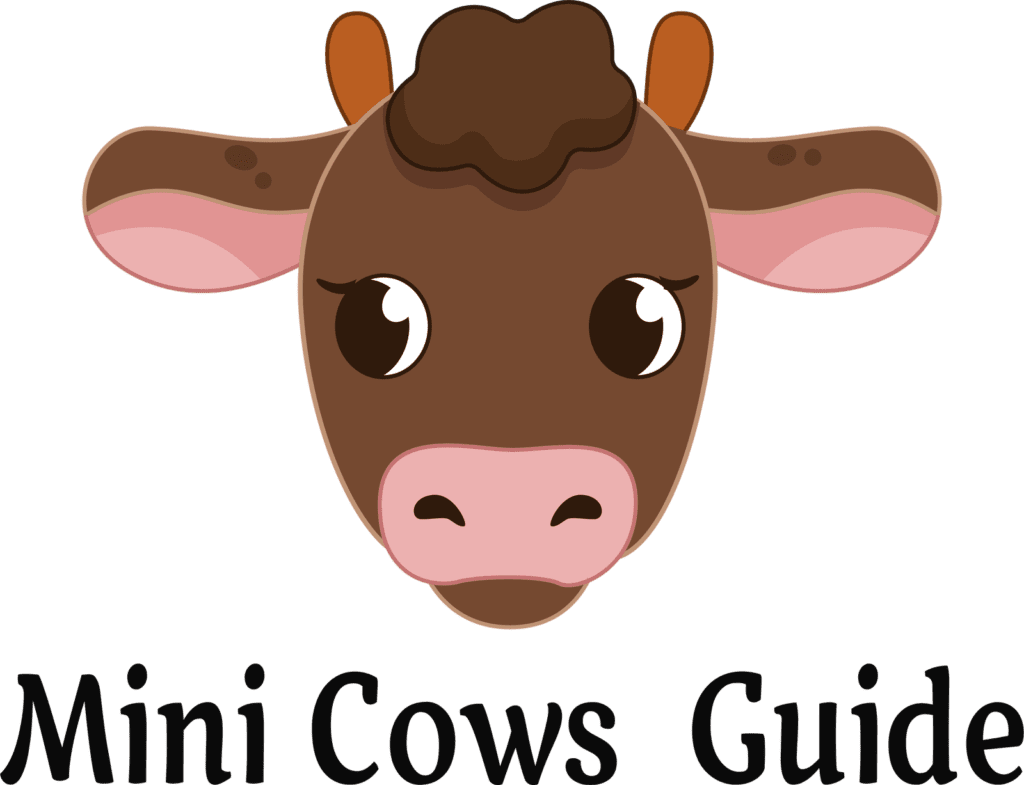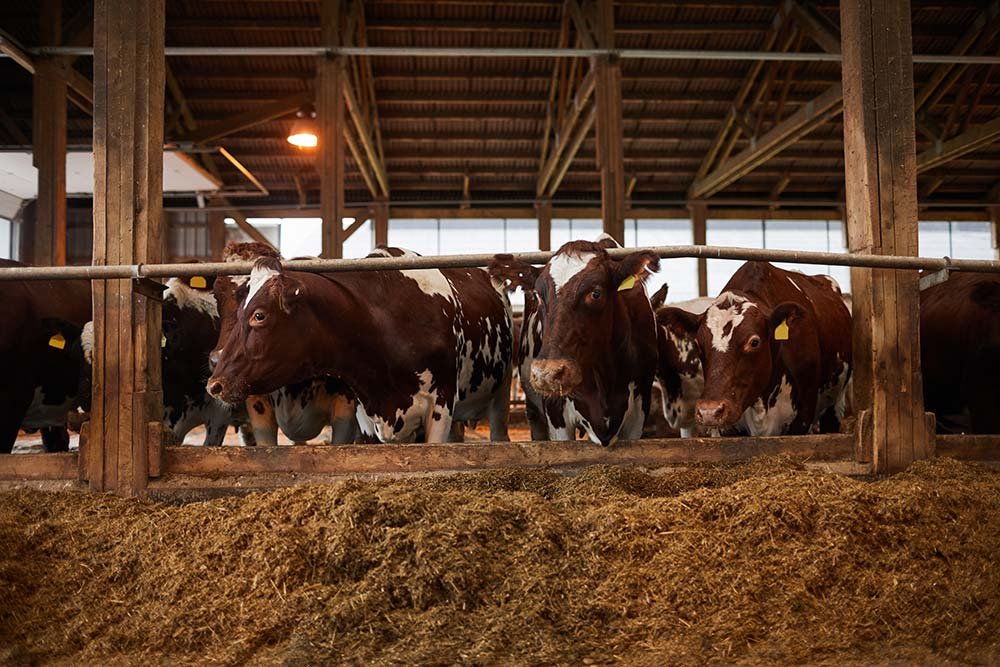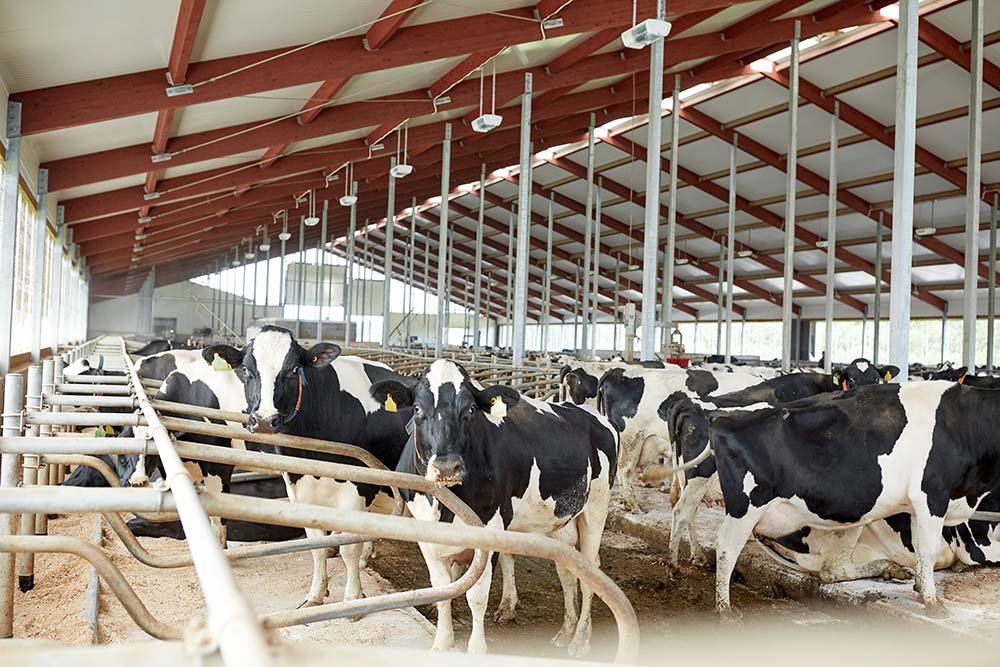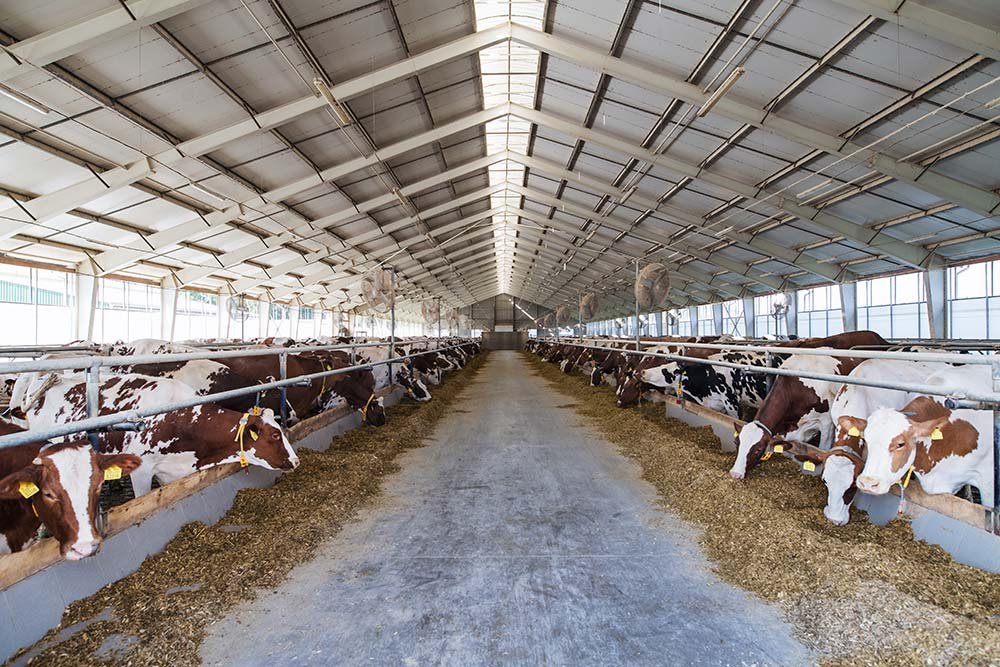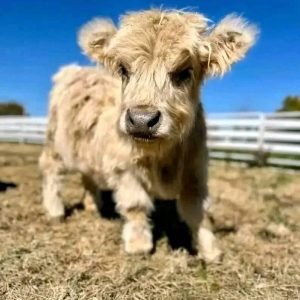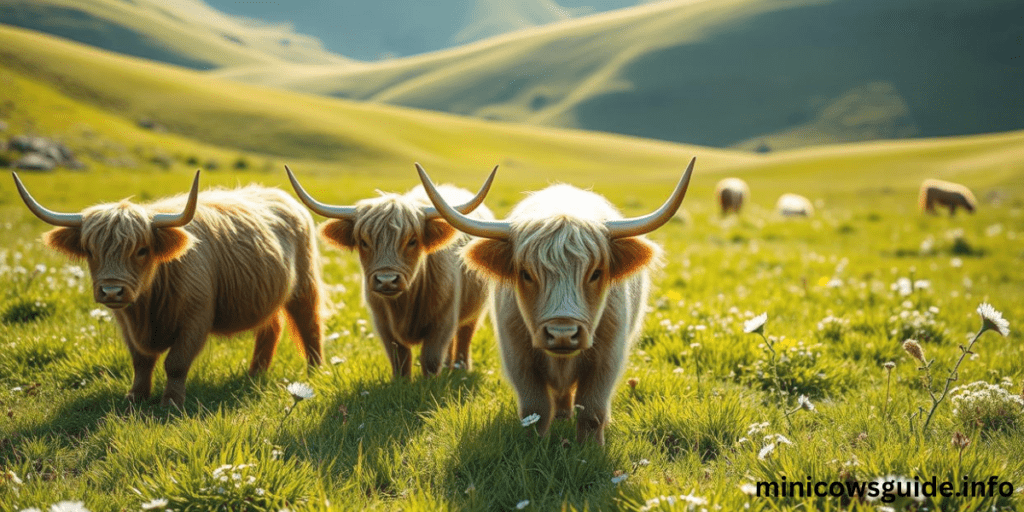Highland cows miniature are adorable in appearance and offer all the usual benefits of having cattle on the farm. Because of these features, they are small in size and are more friendly, so they are suitable for small pieces of land, livestock herding, and companionship, among others. To those who can adopt and accept those characteristics and plan for their care, Mini Highland cows may well be the rewarding and fulfilling type of stock to add to any environment.
What does Mini Highland Cows mean?
Mini Highland cows are a miniature version of the highland cattle that have been bred intentionally to stay true to their kind and at the same time adaptable to limited spaces. These animals are a miniature version of highland cattle which are more suitable for small types of farms.
Highland or the Scottish Highland cattle as they are commonly referred to, is a specific and very old type of beef cattle that originated in Scotland. Known for their long shaggy hair and large horns they are specially suited to the Scottish highlands because of which they have developed the characteristics of their coat and horns.
Highland cattle breed
Appearance:
Highland cattle are characterized by long wavy hair, coloring ranging from red, black, brindle, or white. Its’ coat consists of an inner thick layer of fine fur and a longer, coarser layer of hair, which makes it insulated against cold and damp environments. Their big, semi-circular ears also add more to this uniqueness especially since the grown-ups have big horns.
Size:
Although traditionally large, Highland cattle also include smaller variants, such as Mini Highland cows. Adult males typically weigh between 500 to 800 pounds when fully grown, while females are lighter, ranging from 410 kg to 545 kg and males are ranging from 680 to 910 kg. Their height generally ranges between 36 inches and 44 inches at the shoulder.
Temperament:
Highland cattle are noted for their calm and docile nature. Their generally gentle demeanor makes them easier to manage than other cattle breeds. Their friendly disposition and intelligence also make them well-suited for roles beyond conventional farming.
Adaptations and Benefits
Hardiness:
Highland cattle are exceptionally resilient to severe weather. Their thick, insulating coat allows them to endure cold and wet conditions, thriving in environments that challenge other breeds.
Grazing and Pasture Management:
As adept grazers, Highland cattle efficiently convert low-quality forage into high-quality meat. Their grazing habits contribute to effective pasture management by controlling weeds and fostering healthy grass growth, making them valuable for land management and conservation grazing.
Beef Quality:
Highland beef is renowned for its lean, tender texture and rich flavor. The breed’s natural grazing behavior and slow growth rate enhance the meat’s taste and quality. Highland beef is particularly sought after in organic and grass-fed markets.
Versatility:
Highland cattle serve multiple purposes, including meat production, companionship, and agritourism. Their striking appearance and amiable nature make them popular attractions in educational programs and farm visits.
Conservation and Breeding
Highland cattle boast a long history of selective breeding, tailored to their specific traits over centuries. In contemporary times, the breed faces challenges such as genetic diversity and conservation needs. Efforts by breeders and conservationists focus on preserving the breed’s distinctive characteristics while addressing modern agricultural demands and ethical considerations.
Characteristics of Mini Highland Cows
Size and Physical Traits
Beyond their cuteness, Mini Highland cows are known for their practical benefits. Standing between 36 and 44 tall, they are small enough to suit various environments. Males typically weigh between 680 kg to 910 kg, while females range from 410 kg to 545 kg. Their impressive shaggy coats, featuring an outer layer and a soft undercoat, offer excellent insulation against cold and damp conditions.
Uses and Appearance of Miniature Cows
Mini Highland cows are versatile in their uses, including grazing in residential areas where their smaller size is advantageous. Their horns, which can extend up to 4 feet from tip to tip, enhance their distinctive appearance. Available in colors like tawny red, black, brindle, yellow, white, and dun, Mini Highlands offer aesthetic appeal and versatility.
Beef Production
Despite their smaller size, Mini Highland cows produce premium beef known for its lean, tender, and flavorful qualities. This makes their beef a preferred choice for consumers who value taste and health. Mini Highlands efficiently convert forage into high-quality beef, requiring less feed and space compared to larger breeds, which translates into lower maintenance costs for farmers. Their suitability for organic or grass-fed meat production further enhances their appeal.
Companionship and Agritourism
Beyond agricultural roles, Mini Highland cows excel as cherished companions. Their calm and friendly nature makes them excellent pets, forging strong bonds with their owners. They also shine in agritourism, attracting visitors with their unique appearance and approachable demeanor. Featured in farm stays or educational programs, Mini Highlands add significant charm and appeal, enriching the visitor experience.
Environmental and Pasture Management
Adaptable and hardy, Mini Highland cows thrive in various climates and terrains. Their thick coats help them endure cold weather, while their efficient grazing habits make them valuable for pasture management. They graze on a range of vegetation, aiding in weed control and promoting healthy pastures, which benefits overall land management.
Low Maintenance and Cost Efficiency
The smaller size and robust health of Mini Highland cows contribute to their low maintenance needs. They require less feed, space, and resources compared to larger cattle breeds, making them an economical choice for small-scale farmers. Additionally, Mini Highlands generally face fewer health issues, reducing the frequency and cost of veterinary care.
Longevity and Breeding
Mini Highland cows are known for their longevity, often living into their late teens or early twenties. This durability makes them a cost-effective choice over time. Breeding Mini Highland cows can also be profitable, as there is a growing demand for these miniature cattle. Premium prices for calves make breeding programs financially viable, focusing on maintaining desirable traits such as size, temperament, and beef quality.
Conclusion
Mini Highland cows offer a blend of charm, practicality, and economic value. Their compact size, friendly nature, and versatility make them ideal for small-scale farming, companionship, and agritourism. They provide high-quality beef with reduced maintenance costs, thrive in diverse environments, and contribute positively to pasture management. Their longevity and market demand offer significant benefits to farmers and breeders. For those looking to enhance their farming operations or enjoy the companionship of a unique and hardy animal, Mini Highland cows are a rewarding investment.
